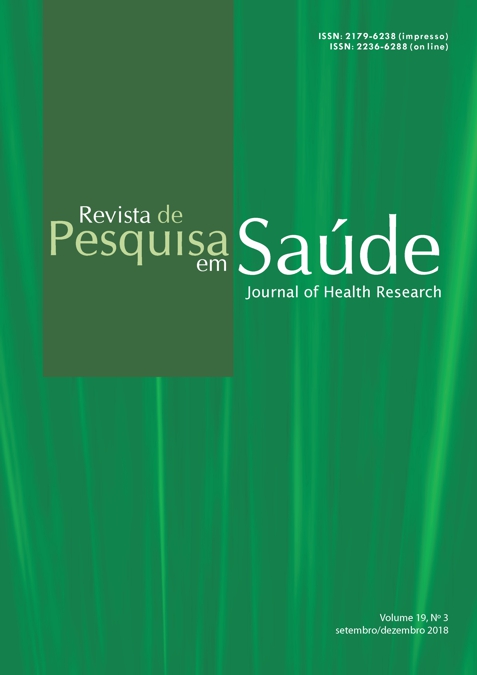SCREENING ELDERLY PATIENTS FOR COGNITIVE FUNCTION AT A REFERENCE CENTER IN NORTHEAST BRAZIL
Abstract
Introduction: Both demographic and epidemiologic transitions experienced by the country in the past decades bring a number of crucial issues for the health care system, especially in the context of severe social inequality, poverty and fragility of institutions. Objectives: To identify the cognitive profile of non-institutionalized elderly outpatients seen at a reference center in São Luís, Brazil. Methods: Cross-sectional study conducted in a reference center in São Luís, MA, Brazil. Final sample consisted of 102 individuals. Inclusion criteria were: age equal to or over 60 years at first consultation, and ability to understand and to answer the tests for cognitive assessment. This study utilized 3 validated tests that have been widely used in Brazil, including the Mini-Mental State Examination (MMSE), the Verbal Fluency Test (VFT) and the Clock Drawing Test (CDT). Results: A total of 102 individuals were included. The majority of patients were women (72%), aged 60-64 years (33.3%), married or living in consensual union (43.1%), and had non-white skin color (52.9%). The prevalence of cognitive impairment was 60.7% for the Minimental state examination, 23.5% for the Verbal Fluency Test and 59.8 % for the Clock Drawing Test. Regarding the presence of cognitive impairment in at least one test, a total of 83.3% was observed. There was an association between the occurrence of cognitive impairment with both marital status and self-perception of health status (p < 0.05). Conclusions: Hence, in the present study, the occurrence of cognitive impairment was considered high and might be associated with marital and health status.
Keywords: Health of the Elderly. Aging. Cognition.








